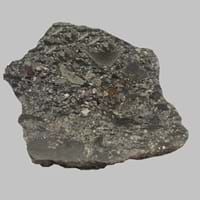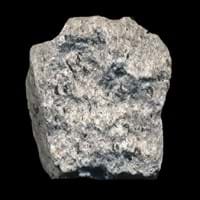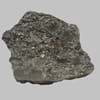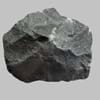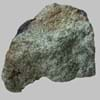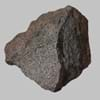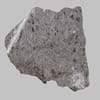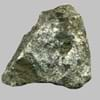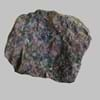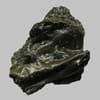Definition
An iron rich extrusive rock found as a member of the alkali basalt magma series
Porphyry is a reddish-brown to purple igneous rock containing large phenocrysts of various minerals embedded in a fine-grained matrix
Origin
Isle of Mull, Scotland
Egypt
Discoverer
Ben More
Unknown
Etymology
From the name of discoverer, Ben More
From Old French porfire, from Italian porfiro and in some cases directly from Latin porphyrites
Class
Igneous Rocks
Igneous Rocks
Sub-Class
Durable Rock, Medium Hardness Rock
Durable Rock, Hard Rock
Other Categories
Fine Grained Rock, Opaque Rock
Fine Grained Rock, Opaque Rock
Texture
Glassy, Massive, Porphyritic, Scoriaceous, Trachytic, Vesicular
Porphyritic
Color
Black, Brown, Light to Dark Grey
Black, Brown, Colourless, Green, Grey, Red, Rust, White
Durability
Durable
Durable
Scratch Resistant
Yes
Yes
Appearance
Rough and Dull
Dull
Interior Uses
Floor Tiles, Homes, Hotels, Kitchens
Decorative Aggregates, Interior Decoration
Exterior Uses
As Building Stone, Paving Stone, Garden Decoration, Office Buildings
Garden Decoration, Paving Stone
Other Architectural Uses
Curbing
Curbing
Construction Industry
As Dimension Stone, Cobblestones, Rail Track Ballast, Roadstone
Construction Aggregate
Medical Industry
Not Yet Used
Not Yet Used
Antiquity Uses
Artifacts, Monuments, Sculpture
Artifacts, Monuments, Sculpture
Commercial Uses
Commemorative Tablets, Creating Artwork, Curling
Creating Artwork, Gemstone, Jewelry
Types
Alkaline Basalt, Boninite, High Alumina Basalt, Mid Ocean Ridge Basalt (MORB) and Tholeiitic Basalt
Rhomb Porphyry
Features
Has High structural resistance against erosion and climate, Very fine grained rock
Generally rough to touch, Is one of the oldest rock, Surfaces are often shiny
Archaeological Significance
Famous Monuments
Data Not Available
Data Not Available
Famous Sculptures
Data Not Available
Data Not Available
Pictographs
Used
Not Used
Petroglyphs
Used
Not Used
Formation
Benmoreite is a type of Igneous rock which is formed through the cooling and solidification of lava or magma. It forms with or without crystallization, either below the surface as intrusive rocks or on the surface as extrusive rocks.
Porphyry is formed in two stages: the magma cools slowly deep within the crust or the magma is cools rapidly as it erupts from a volcano, creating small grains that are usually invisible to naked eye.
Mineral Content
Alkali feldspar, Biotite, Olivine, Plagioclase, Pyroxene, Sodic plagioclase
Biotite, Chert, Feldspar, Garnet, Graphite, Quartz, Silica
Compound Content
Aluminium Oxide, CaO, Iron(III) Oxide, FeO, Potassium Oxide, MgO, MnO, Sodium Oxide, Phosphorus Pentoxide, Silicon Dioxide, Titanium Dioxide
Aluminium Oxide, CaO, Iron(III) Oxide, Potassium Oxide, MgO, Sodium Oxide, Silicon Dioxide, Titanium Dioxide
Types of Metamorphism
Burial Metamorphism, Cataclastic Metamorphism, Contact Metamorphism, Hydrothermal Metamorphism, Impact Metamorphism, Regional Metamorphism
Burial Metamorphism, Cataclastic Metamorphism, Contact Metamorphism, Hydrothermal Metamorphism, Impact Metamorphism, Regional Metamorphism
Types of Weathering
Biological Weathering, Chemical Weathering, Mechanical Weathering
Biological Weathering, Chemical Weathering, Not Registered
Types of Erosion
Chemical Erosion, Coastal Erosion, Glacier Erosion, Sea Erosion, Water Erosion, Wind Erosion
Chemical Erosion, Coastal Erosion, Glacier Erosion
Grain Size
Fine Grained
Fine Grained
Fracture
Conchoidal
Irregular
Porosity
Less Porous
Less Porous
Compressive Strength
Not Available
Cleavage
Perfect
Imperfect
Specific Gravity
2.8-3
2.5-4
Transparency
Opaque
Translucent to Opaque
Density
2.9-3.1 g/cm3
2.5-2.52 g/cm3
Specific Heat Capacity
Not Available
Resistance
Heat Resistant, Pressure Resistant, Wear Resistant
Heat Resistant, Impact Resistant
Deposits in Eastern Continents
Asia
India, Russia
China, Kazakhstan, South Korea, Thailand, Turkey, Vietnam
Africa
South Africa
Egypt, Ethiopia, Ghana, South Africa
Europe
Iceland
Finland, France, Germany, Great Britain, Hungary, Iceland, Ireland, Italy, Netherlands, Norway, Romania, Sweden, Switzerland
Others
Not Yet Found
Greenland
Deposits in Western Continents
North America
Canada, USA
Canada, Cuba, Jamaica, USA
South America
Brazil
Bolivia, Brazil, Colombia, Ecuador, Paraguay
Deposits in Oceania Continent
Australia
Not Yet Found
New South Wales, New Zealand, Western Australia
All about Benmoreite and Porphyry Properties
Know all about Benmoreite and Porphyry properties here. All properties of rocks are important as they define the type of rock and its application. Benmoreite and Porphyry belong to Igneous Rocks.Texture of Benmoreite is Glassy, Massive, Porphyritic, Scoriaceous, Trachytic, Vesicular whereas that of Porphyry is Porphyritic. Benmoreite appears Rough and Dull and Porphyry appears Dull. The luster of Benmoreite is earthy while that of Porphyry is dull. Benmoreite is available in black, brown, light to dark grey colors whereas Porphyry is available in black, brown, colourless, green, grey, red, rust, white colors. The commercial uses of Benmoreite are commemorative tablets, creating artwork, curling and that of Porphyry are creating artwork, gemstone, jewelry.
